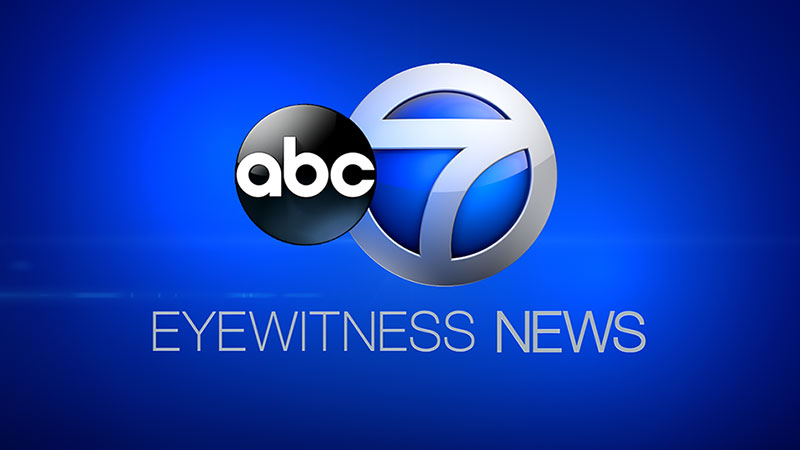Hundreds protest tax on sugary drinks in Cook County
CHICAGO (WLS) -- Hundreds of protesters showed up at Monday's Cook County Board meeting, angry over a proposed tax on sweetened drinks.
Cook County residents could soon find themselves digging deeper into their pockets if they want to buy a soda.
Cook County Board President Toni Preckwinkle revealed earlier this month her 2017 budget includes a plan to start taxing sugary drinks.
Preckwinkle, who raised the county's sales tax last year, said she can balance her $4.4 billion dollar budget with a combination of spending cuts and new revenue.
The penny-per-ounce tax on sweetened drinks could generate nearly $75 million in one year, which would help close the county's budget gap without cutting public health or safety services.
The packed hearing included witnesses who connected sweetened drinks to their diabetes, heart disease and obesity.
"I weighed 280 for the majority of my life. I now weigh 338 pounds," Tony Williams said.
But just as many in the board chamber and lined up outside were opposed to the tax. They insisted fewer beverages consumed would mean decreased production and cost jobs.
"If you do cut production, you will cut those jobs. And Cook County will suffer for it," said Brian Rainville, Teamsters Union.
"Claims that a sweetened drinks tax would cause job losses are overstated and short sighted," said David Boras, Northbrook business owner.
, said what he'll do if cook county taxes soda:
"I'll just buy my pop someplace else, know what I mean? Like I buy my cigarettes," said Southsider Dan Yniguez, filling up a 32 ouncer Monday.
"Majority of our customers we've lost over the last 10-15 years, have all gone to Indiana," said business owner Raleigh Kean.
Compared to Indiana, Kean's family-owned stores already charge higher sales taxes on gasoline, water, tobacco and other non-food products.
"It's almost at that point where it's going to close our doors," he said.
Preckwinkle, who did not attend the hearing, has rejected another property tax increase.
"It's a choice tax. That's why I'm opposed to the property tax, because it would affect everybody," said Rev. Leslie Sanders, community activist.
According to the proposal, a "sweetened beverage" contains sugar or artificial sweetener, like carbonated soft drinks, fruit beverages that are not 100 percent fruit juice, sports drinks and energy drinks. Water, different kinds of milk and baby formula are not considered sweetened beverages.
Preckwinkle said it's a way to protect people's health.
"Taxing sweetened beverages can lower obesity, Type 2 diabetes and tooth decay," she said.
Preckwinkle said without the tax, she'd have to cut spending on healthcare and public safety.
"This is a tough budget that she has presented, but it does stabilize us moving forward," Cmsr. Jesus "Chuy" Garcia said.
"I'm not supporting it at this point because I think it's difficult to put another tax on the people of Cook County," Cmsr. Peter Sylvestri said.
Even artificially sweetened diet pop would be taxed. At the Fish Keg on Howard Street, GM Monty Williamson said an 85-cent, 12-ounce can, after the highest in the nation sales tax sells for 96 cents, will cost a $1.08 under the Preckwinkle plan.
"We want to keep our prices as low as possible, and it's tough with all the taxes that are being charged to us," Williamson said.
The entire budget proposal was sent to the County Finance Committee for hearings.
The Illinois Beverage Association sent out a release earlier this month that said a two-liter bottle of soda priced at 99 cents would cost about 68 cents more if the tax passes the board. That's an increase of about 70 percent.
"Many Cook County taxpayers have faced a massive property tax increase, along with a sales tax increase and new taxes on water and sewer services. Now is not the time for Illinois families to endure a tax on their groceries. Enough is enough. Nearly 90,000 jobs in restaurants, grocery stores, convenience stores, movie theaters and more rely on the industry - all of which could be hurt by a proposed tax," IBA Acting Executive Director Claudia Rodriguez said in the statement.
A 15-ounce double-shot Starbucks energy drink would cost about 15 cents more.
"I wouldn't want to pay the extra tax. No. I'm against it," customer Debbie Sadowski said.
Dan McHugh said he is for the tax because it could help prevent obesity and diabetes. The World Health Organization urged counties to raise taxes on sugary drinks earlier this month.
"I am for any kind of thing that stops people from being obese," McHugh said.
That's likely one of the arguments supporters will be using to push the tax forward. But for some people, like Lem Washington's uncle, it doesn't matter.
"I have an uncle who is addicted to Pepsi. He has to have it. So he doesn't care about the side effects. We try to tell him. But now he'll be hurting himself and losing money," Washington said.
The American Beverage Association, which is already running ads against the proposed tax on sugary drinks, is suing the city of Philadelphia for imposing a similar tax . The ABA said people should not have to pay a sales tax and a beverage tax on one item.











